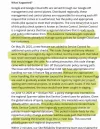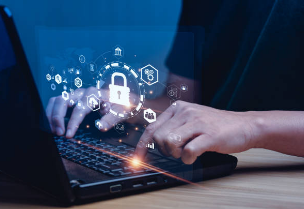The Government, as it always does with online legislation, relies on the ignorance of the general public to the dangers and the privacy implications of internet usage. They see the internet falsely and they only learn about the dangers once its already gone wrong.
As somebody experienced in internet security and has spent most of my life involved in differing degrees in that area, I have zero social media under my own name. I don't pay for my TV licence online nor my council tax and I use a VPN constantly.
Again, people don't understand the dangers. They use security through obscurity and hope for the best.
The idea of "well I'll just upload a selfie" shows an incredible misunderstanding of that danger. They don't know what is going on technically behind the scenes and the holes in it. It's like those gamers who randomly install kernel level anti-cheats in the latest games. They don't understand what they've done.
Let's have a look at just the serious CVEs that have been announced just recently:
There's 2 10.0 (!!!!) rateds CSE in Cisco Identity Systems API that allows remote code execution, CVE-2025-20337 and CVE-2025-20281.
CVE-2025-49706 is a 3.5 rated exploit in Microsoft SharePoint that allows an attacker to spoof network information. CVE-2025-49704 is a much more serious exploit rated at 8.8 in Sharepoint that allows remote code execution.
CVE-2025-54309 is a 0 day on CrushFTP rated 9.0 that allows privilege escalation to admin. CVE-2025-6558
is a Chromium engine exploit that allows sandbox escaping and code execution on the host machine, Google rated this as high severity. Chromium is the engine that powers Chrome, Edge, Brave, Opera and many other browsers. CVE-2025-53770 is a somewhat famous 9.8 rated exploit in SharePoint that allows remote code execution that was so severe that last week,
almost every Government IT employee in the world had to work overtime to immediately fix it.
That's just 5 in the last 2 week alone and 3 of those had zero day exploits spotted in the wild already and are built by multi billion dollar companies who have full code auditing and CI/CD strategies in place by the best programmers in the world. This also doesn't mention the Docker escape vulnerability, the VMWare escape vulnerability and a fucking privilege escalation that found in sudo's chroot recently.
But just upload a selfie to some random company who aren't really that arsed about security. No possible harm there. Good job lads.



